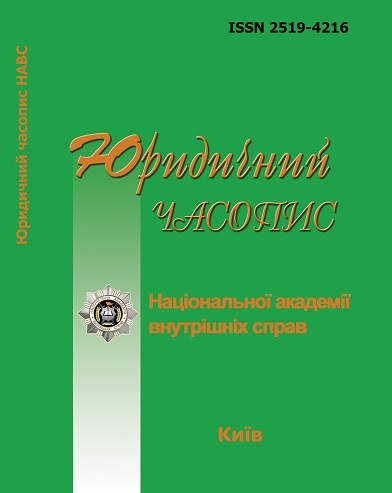The Questions of the Concept, Subjects and Objects of Carrying out Covert Investigative (Search) Actions
Abstract
In theoretical and practical aspects, an analysis of problem issues related to the concept, subjects, objects of observing of a person, thing or place as a covert investigative (search) action in a criminal proceeding is carried out.
With a premise on scientific works, the authors point out that the mixing of operative-search and criminal-procedural activities is dangerous. They note that such combination was previously ruled unacceptable because of the negative impact on the objectivity of the investigation and the validity of the findings in the criminal proceedings. They express their conviction regarding the appropriate approaches to be applied in a democratic society in order to ensure the impartiality and objectivity of the investigation, and to prevent investigatory errors related to violation of constitutional rights and freedoms.
The authors definition of the observation of the person, thing or place is proposed. It is a covert investigative (search) action consisting in conducting by the specially authorized subjects of the prosecution party (investigator or operative subdivisions) in publicly accessible places of direct visual observation or visual observation using video recording, photographing, special technical means for observation.
The propositions concerning the amending the national criminal procedure legislation are given in the article.
The authors suggest to exclude the investigator’s right to conduct covert investigation (search) actions by the corresponding changes to the Part 6 of the Art. 246 of the Criminal Procedure Code of Ukraine.
Based on the analysis of the system of national legislation the authors prove the inconsistency of the provision giving the investigator the right to involve persons with whom confidential cooperation was established, to conducting covert investigations (search) actions, and substantiatedly delaying its removal from the law.
Downloads
Abstract views: 695 PDF Downloads: 199
Copyright (c) 2018 Law Magazine of the National Academy of Internal Affairs

This work is licensed under a Creative Commons Attribution-NonCommercial-NoDerivatives 4.0 International License.
- Authors reserve the right to authorship of their own work and transfer to the magazine the right of the first publication of this work under the terms of the Creative Commons Attribution License, which allows other persons to freely distribute published work with mandatory reference to authors of the original work and the first publication of an article in this magazine.
- Authors have the right to enter into separate additional agreements on non-exclusive dissemination of the work in the form in which it was published in the journal (for example, to post an article in the institution's repository or to publish as part of a monograph), provided that the link to the first publication of the work in this journal is maintained.
- The journal's policy allows and encourages the posting of articles by authors on the Internet (for example, in electronic storehouses of institutions or on personal websites), both before the submission of this manuscript to the editorial office and during its editorial processing, as this contributes to the creation of a productive scientific discussion and positively affects the efficiency and dynamics of citing the published work.




